Complete Solutions to Oxidation And Reduction Of Carbonyl Compounds of chapter ALDEHYDES, KETONES AND CARBOXYLIC ACID of Class 12 book with complete answers and questions
| Class 12 | CHEMISTRY |
| Chapter | ALDEHYDES, KETONES AND CARBOXYLIC ACID |
| A2Z | Oxidation And Reduction Of Carbonyl Compounds |
| Number Of Questions | 54 |
| Academic Year | 2023-24 |
In the following reactiona, the product `S` is

View Solution`C_(2) H_(5) CHO and (CH_(3))_(2) CO`can be distingushed by testing with
View SolutionWhich of the following will give a recemic mixture on reduction with `Na BH_(4)` followed by acid work-up?
View SolutionThe Clemmensen reduction of acetone yields
View SolutionThe compound that will not give iodoform on treatment with alkali and iodine is :
View SolutionWhat would be the major product in the following reaction?
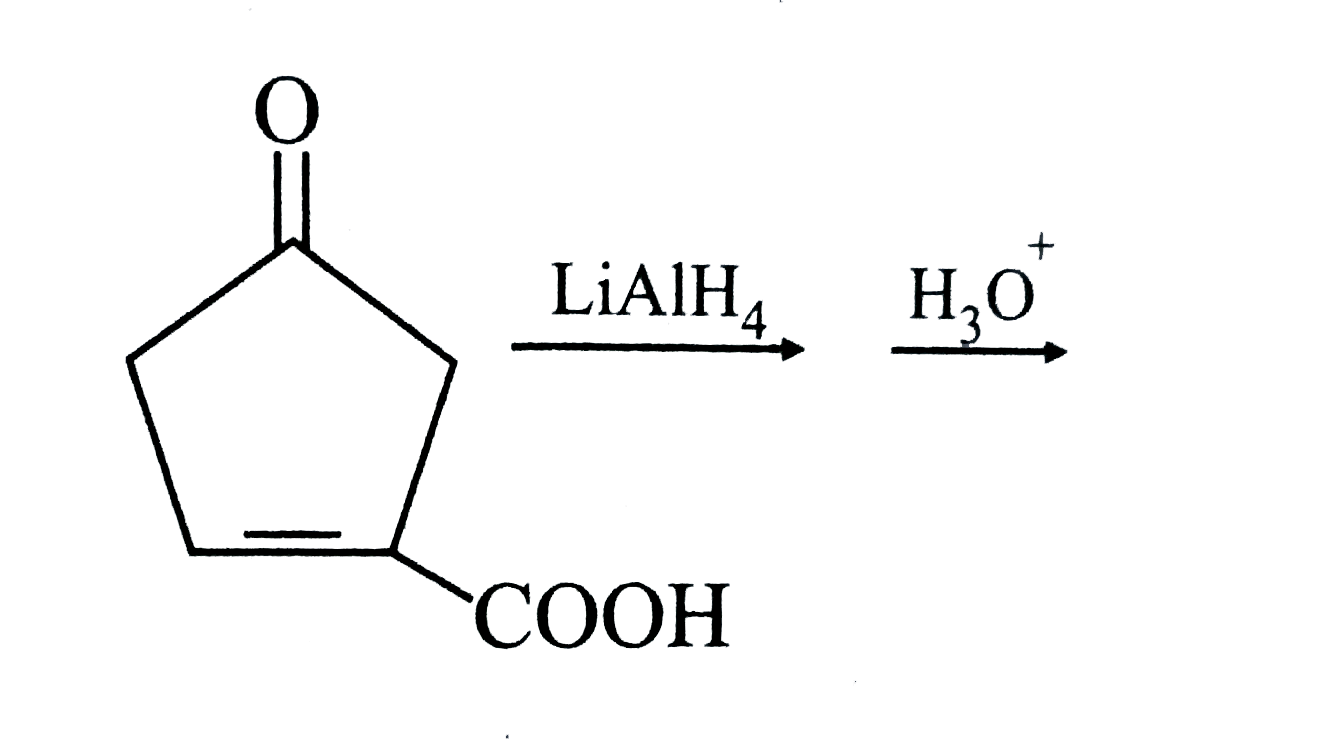
View SolutionWhich is the most suitable regent for the following transformation ?
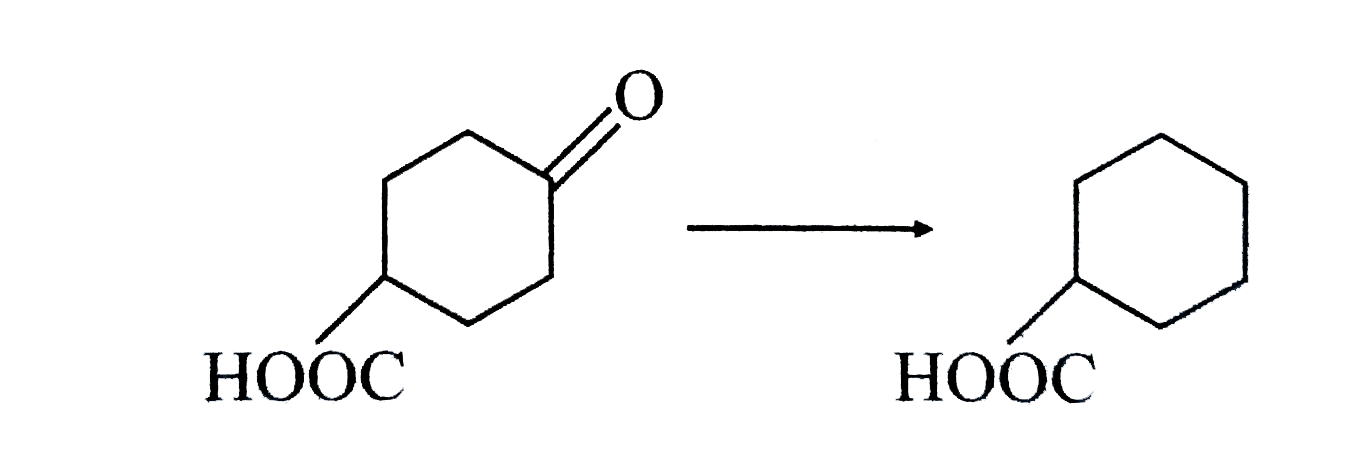
View SolutionWhich one of the following pairs is not correctly matched ?
View SolutionThe reagent which can best bring about the following transformation is

View SolutionThe approprite reagent for the following transformation
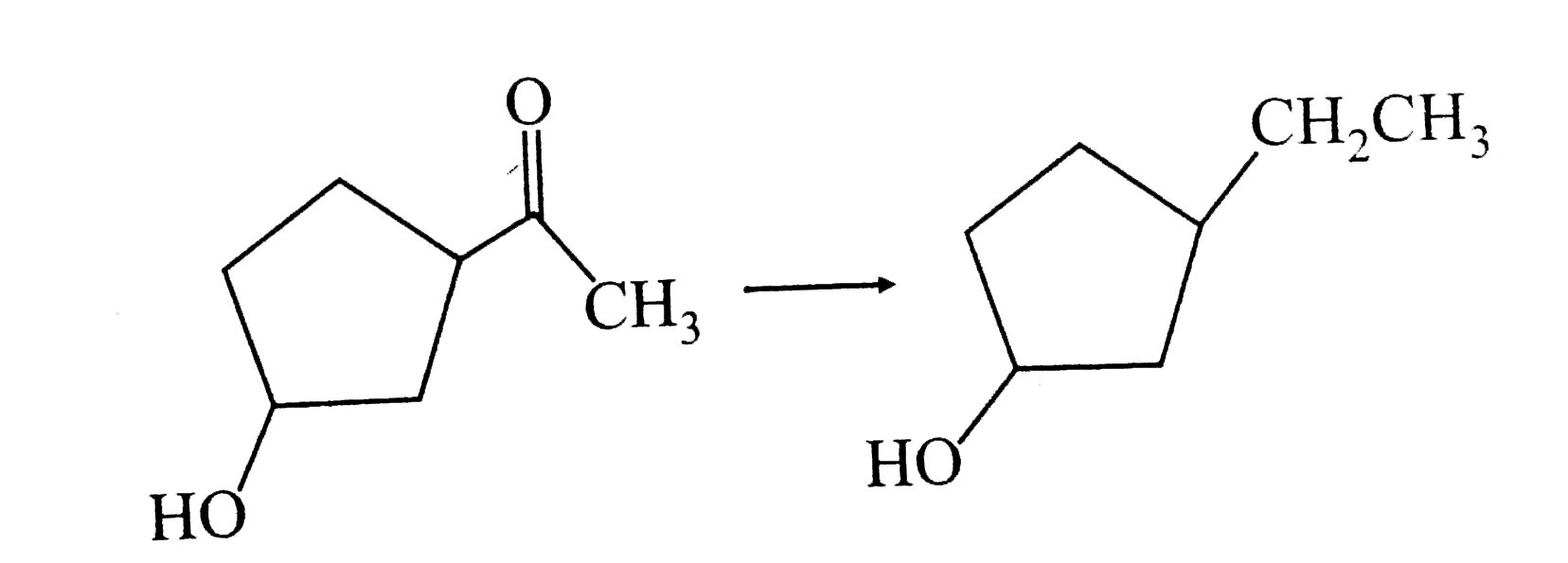
View SolutionWhat would be the major produce in the following oxidation reaction
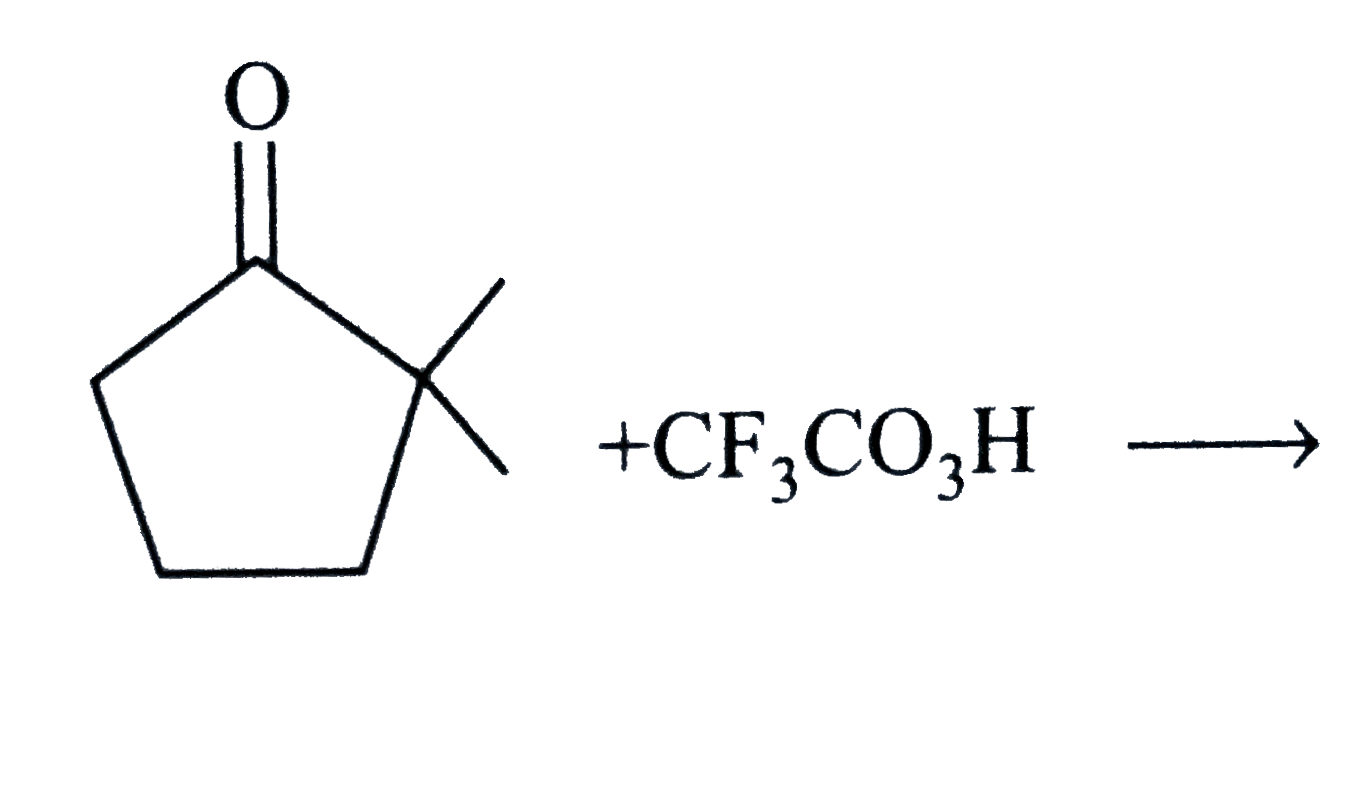
View SolutionTollens reagent used for the distinction of aldehydes with ketones is
View SolutionWhich of the following organic compound axhibits positive Fehling test as well as iodoform test?
View SolutionWhich compound given below does not form red precipitate with ammobniacal solution of `Cu (II)` tartarate?
View SolutionWhich reagent can differentiate between benzaldehyde and acetophenone by
View SolutionThe product of acid can difference of `P and Q` can be distinguished by

View SolutionThe following reagent converts `C_(6) H_(5) CHCHO to C_(6) H_(3) CHOHCOONa`
View SolutionTo distinguish between formaldehyde and acetaldehyde, we require
View SolutionWhich reagent can be used to saparate a mixture of ethanol and butanone into components?
View SolutionRegent that can difference `2`-propanol from acetone is
View SolutionWhich regent gives below can differentiate propanal from propanone?
View SolutionWhich is the most suitable regent for the reaction?
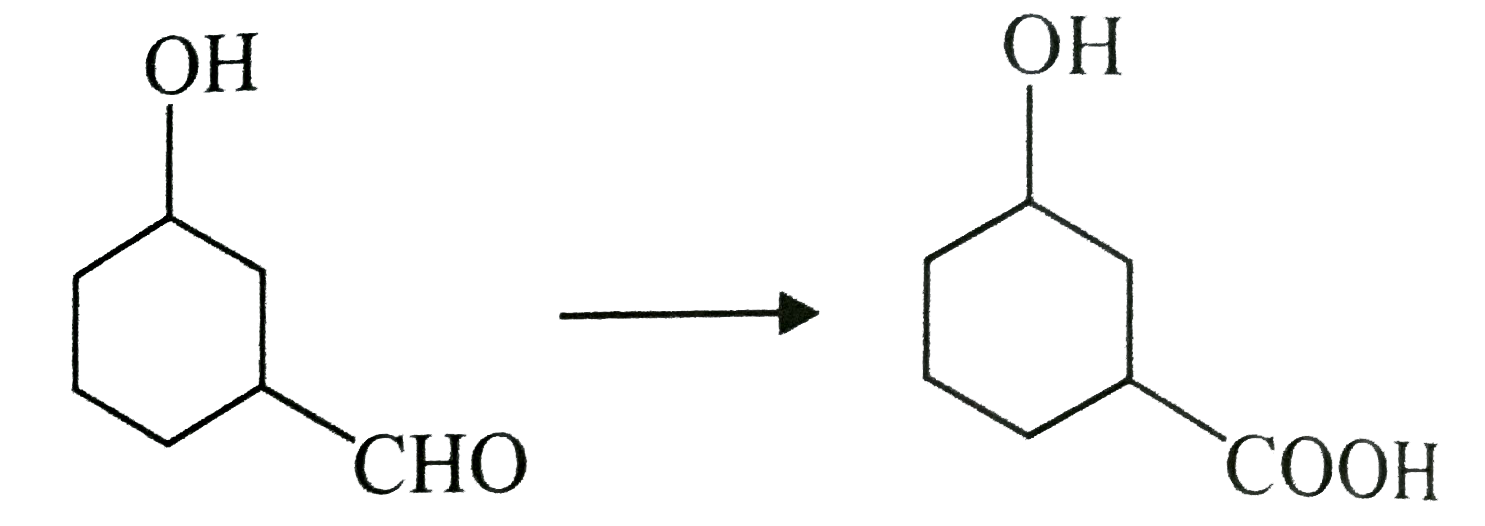
View SolutionHow will you convert butan -2-one to propanoic acid?
View SolutionThe reagent with which both acetaldehyde and acetonereacteasily is
View SolutionWhich one of the following is reduced with zine and hydrochloric acid to give the corresponding hydrocarbon?
View SolutionWhen acetaldehyde is heated with Fehling's solution it gives a precipitate of
View SolutionIn the following reaction sequence, the correct structures of (E ), (F) and (G) are:

(*implies 13C-labelled carbon)
View SolutionWhich of the following will not give the iodoform test?
View SolutionHaloform test is given by the following substance
View SolutionWhich of the following does not give yellow precipitate with `NaOH + KI`?
View SolutionThe alkaline `CuSO_(4)` contanining sodium potassiumtartrate does not react with
View Solution`CH_3 CH=CHCHO` is oxidised to `CH_3 CH=CHCOOH` using :
View SolutionWhich of the following does not turn Schiff's reagent to pink?
View SolutionThe final product formed when acetaldehude is reduced with sodium and alcohol is
View SolutionThe compound obtained by the reduction of propionadehyde by amalgamated zine and concetrated `HCI` is
View Solution`2CH_(3)-underset(O)underset(||)(C)-CH_(3) underset(H^(+))overset(Mg//Hg)to` Product in the reaction is
View SolutionContents of three bottles were found to react
(i) Neither with Fehling's solution nor with Tollens regent
(ii) Only with Tollens reagent but not with Fehling's solution
(iii) With both Tollens and Fehling's solution. If they contained either (acetadehyde) or propanone (acetone) or benzal (benzaldehyde), which bottle contained which
View SolutionWhich one of the following react `HCN` and Tollens reagent, but is not oxidisedby Fehling's solution?
View SolutionWhich one of the following does not give brickred precpitate with Fahling solution?
View SolutionAcetaldehyde and can be distinguished by
View SolutionWhich one isused in the mabufacture of mirror?
View SolutionWhich one of the following product is obtained by the oxidationof propinaldehyde?
View SolutionWhich one of the following would produce an orage coloured precipitate with `2, 4`-dinitrophenyl hydrazine?
View SolutionConsider the following reaction
A `"dicarbony"l overset (NaOH ("Dil"))underset ("Aldol") to overset ((Ph_(3)P)_(3) RhCI) to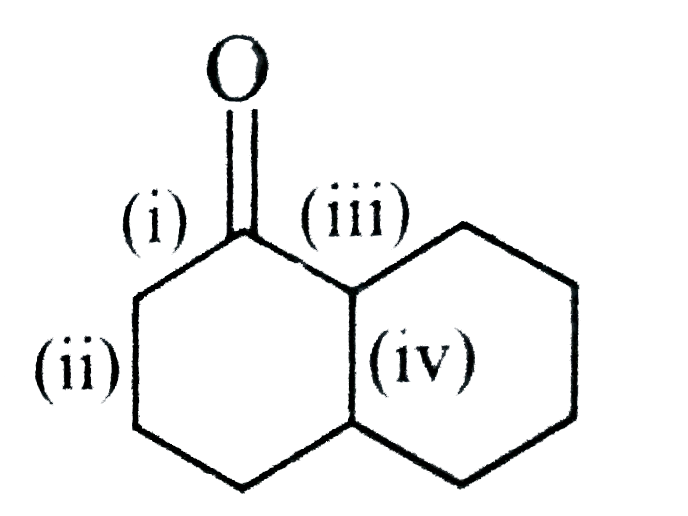
Which of the Iabeled C - C hond formation is not possible in the above reaction?
View SolutionIn the following reaction
`CH_(2)O + CH_(3) - NO_(2)overset (Dil Na OH) to overset ("Cone" H_(2) SO_(4)) underset ("Heat") to`
The major oranic product is
View SolutionThe incorrect statement regarding condensation is
View SolutionWhich of the following could result as a product in the aldol condensation reaction?
View SolutionWhich of the following gives aldol dondensation reaction?
View SolutionThe number of aldol reaction (s) that oscurs in the given transformation is
`CH_(2) CHO + 4 HCHO overset ("cone. Aq" NaOH) to
View SolutionAldol condensation will not be observed in
View SolutionWhich of the following compound will undergo self - aldol condensation in the presence of cold dilute alkali?
View SolutionAcetaldehyde when treated with dilute `NaOH` gives.
View SolutionTratment of propionaldehyde with diltu `NaOH` solution gives
View SolutionAldol condensation of acetaldehyde involves the Formation of which of the following intermendiate
View Solution
Oxidation And Reduction Of Carbonyl Compounds questions and complete solutions for chapter ALDEHYDES, KETONES AND CARBOXYLIC ACID of A2Z CHEMISTRY (HINGLISH) of Class 12
All Exercises from A2Z Class 12 CHEMISTRY ALDEHYDES, KETONES AND CARBOXYLIC ACID
- AIIMS Questions
- AIPMT/NEET Questions
- Assertion-Reasoning Questions
- Cannizaro'S Reaction
- Carboxylic Acid
- Derivatives Of Carboxylic Acid
- Methods Of Preparation Of Aldehydes And Ketones
- Miscellaneous Reactions Of Aldehydes And Ketones
- Oxidation And Reduction Of Carbonyl Compounds
- Section A (Topicwise question
- Section B - Assertion Reasoning
- Section D - Chapter End Test